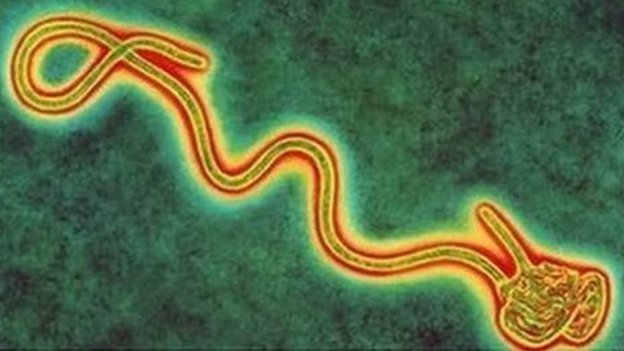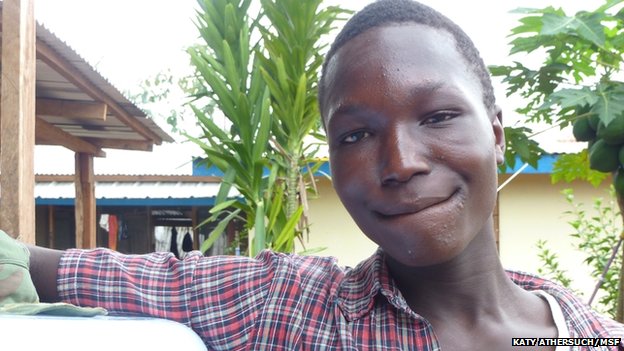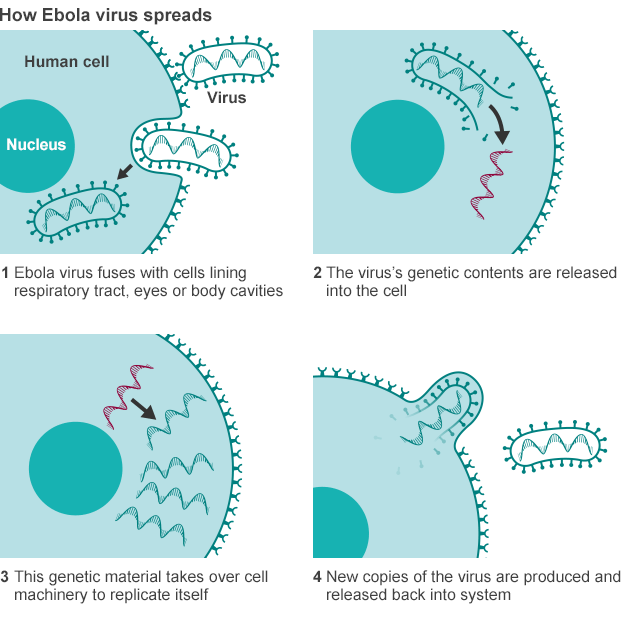Ebola serum for Africa patients within weeks, says WHO

Serum made from the blood of recovered Ebola patients could be available within weeks in Liberia, one of the countries worst hit by the virus, says the World Health Organization.
Speaking in Geneva, Dr Marie Paule Kieny said work was also advancing quickly to get drugs and a vaccine ready for January 2015.
The Ebola outbreak has already killed more than 4,500 people.
Most of the deaths have been in Guinea, Liberia and Sierra Leone.
“Start Quote
Dr Marie Paule Kieny WHO assistant director general for health system and innovationThe partnership which is moving the quickest will be in Liberia where we hope that in the coming weeks there will be facilities set up to collect the blood, treat the blood and be able to process it for use”
Dr Kieny, WHO assistant director general for health system and innovation, said: "There are partnerships which are starting to be put in place to have capacity in the three countries to safely extract plasma and make preparation that can be used for the treatment of infective patients.
"The partnership which is moving the quickest will be in Liberia where we hope that in the coming weeks there will be facilities set up to collect the blood, treat the blood and be able to process it for use."
It is still unclear how much will become available and whether it could meet demand.
In other developments:
- NBC freelance cameraman Ashoka Mukpo - who contracted Ebola in West Africa - is declared free of the virus and will leave hospital in the US state of Nebraska
- Riots break out in Sierra Leone's diamond-rich Kono district after angry youths resisted efforts to "quarantine" a house where a 90-year-old woman suspected to have Ebola lived. The youths were said to be angry because there were no treatment centres in Kono, the BBC's Umaru Fofana says. Police imposed a daytime curfew in the area
- UK International Development Secretary Justine Greening visits Sierra Leone to assess the impact of the government's $200m (£125m) aid package
- The US Homeland Security Department says all visitors arriving from Liberia, Guinea and Sierra Leone will undergo enhanced screening at one of five airports
- The Dominican Republic joins a group of Caribbean countries that have banned visitors from the three West African nations
If a person has successfully fought off the infection, it means their body has learned how to combat the virus and they will have antibodies in their blood that can attack Ebola.
Doctors can then take a sample of their blood and turn it into serum - by removing the red blood cells but keeping the important antibodies - which can be used to treat other patients.
 Alexander Kollie's son survived Ebola in
Liberia and wants to study biology and become a doctor
Alexander Kollie's son survived Ebola in
Liberia and wants to study biology and become a doctor I was able to see my son in the care centre from across the fence, so I called out to him: "Son, you're the only hope I got. You have to take courage. Any medicine they give to you, you have to take it."
He told me: "Papa, I understand. I will do it. Stop crying Papa. My sisters are gone but I am going to survive and I will make you proud."
Every day, the counsellors made sure they saw me, and they sat with me so I could talk.
Dr Marie Paule Kieny of the WHO: "The partnership, which is moving the quickest, will be in Liberia"
The Spanish nurse who became the first person to contract Ebola outside West Africa tested negative for the virus after reportedly receiving human serum containing antibodies from Ebola survivors.
Dr Kieny said the treatment was not without risks, and WHO has already issued guidelines to ensure safety. Any donor blood will need to be screened for infections such a hepatitis and HIV, for example.
Vaccines and drugsShe said trials of two possible Ebola vaccines could produce initial results by the end of the year.
- Avoid direct contact with sick patients as the virus is spread through contaminated body fluids
- Wear protective cover for eyes
- Clothing and clinical waste should be incinerated and any medical equipment that needs to be kept should be decontaminated
- People who recover from Ebola should abstain from sex or use condoms for three months
The vaccines will be tested first to see if they are safe for humans, and if they can protect people from the Ebola virus.
Once these questions have been answered, the WHO hopes to extend the trials to a much wider group of people and start giving it to Africa.
"These trials will all start in the coming two weeks... and continue for six months to a year but to have initial results about safety and immunogenicity to have a choice of a dose level by the end of this year in December."
Dr Kieny said there were a number of drugs being tested and developed in different countries.
A partnership between Oxford University and the Wellcome Trust is now visiting sites in the three affected African countries to identify which treatment centres would be adequate and willing to start testing drugs soon, she said.

How Ebola survivors’ blood is saving lives
- Symptoms include high fever, bleeding and central nervous system damage
- Spread by body fluids, such as blood and saliva
- Fatality rate can reach 90% - but current outbreak has mortality rate of about 70%
- Incubation period is two to 21 days
- There is no proven vaccine or cure
- Supportive care such as rehydrating patients who have diarrhoea and vomiting can help recovery
- Fruit bats, a delicacy for some West Africans, are considered to be virus's natural host
Ebola virus: Busting the myths
BBC © 2014 The BBC is not responsible for the content of external sites. Read more.